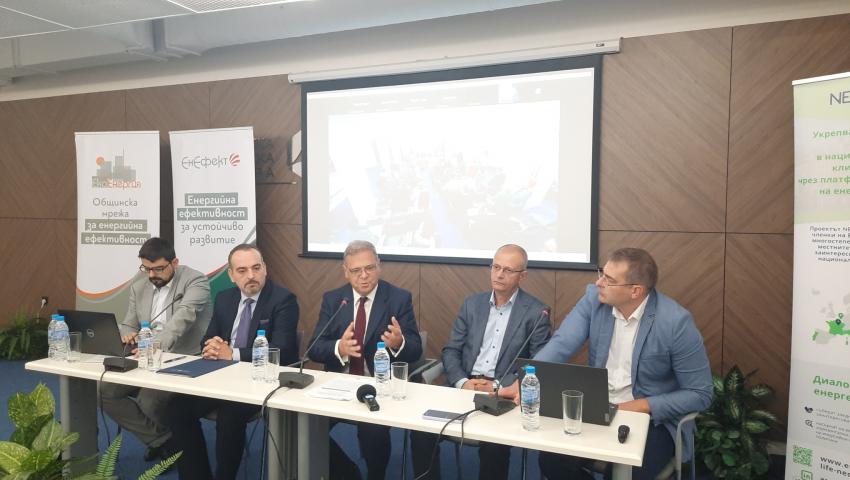THE ROLE OF ENERGY EFFICIENCY IS UNDERESTIMATED AS A FACTOR FOR BETTER ENERGY BALANCE AND A CLEAN TRANSITION
On October 5, a national roundtable of the Investing in Sustainable Energy series was held at the BIA SKY Office Building in Sofia on the topic "Beyond the National Recovery and Sustainability Plan: strategic vision and practical dimensions at the local level." The one-day event was organised by the Bulgarian Industrial Association, the Energy Efficiency Centre "EnEffect" and the Municipal Energy Efficiency Network "EcoEnergy".
"The concept of today's event is to see what is the vision for the development of horizontal energy efficiency policies, and then to find their sectoral implications and get to the individual instruments," explained Dragomir Tsanev, Executive Director of the Energy Efficiency Centre "EnEffect".
The event was attended by Julian Popov, Minister of Environment and Water; Angelina Boneva, Deputy Minister of Regional Development and Public Works; Ivaylo Alexiev, Executive Director of the Agency for Sustainable Energy Development; Dobri Mitrev, President of the Board of the Bulgarian Industrial Association and others.
Asked about the state of the administrative capacity to implement the reforms related to the clean transition, Minister Julian Popov said, "Each municipality, each ministry has its own capacity. The problem is not so much the capacity in general, the problem is the political will and determination and the adherence to a political direction. When we all work together and in the same direction, then this administrative capacity can give very good results especially if it works together with the business and with the support of the business." With regard to the process of renovation of housing in the country, he commented that public funds should cover in the range of 20-25% of the total cost of energy renovation of buildings, with some owners being able to renovate their buildings entirely with their own financing, and others being supported under the energy poverty - once the whole energy system was fully operating.
During the national roundtable, representatives of local authorities, industry organisations, financial institutions, associations and associations in the field of sustainable energy joined the discussion by presenting concrete tools and solutions supporting the implementation of public policies. The role of Bulgarian business as a driver of climate and energy policy implementation and as a key partner of local authorities was also highlighted, but, according to Dobri Mitrev, there is still a need to remove administrative barriers, and the need for skilled professionals and workers, without whom a real energy transition is unthinkable, is becoming increasingly serious.






